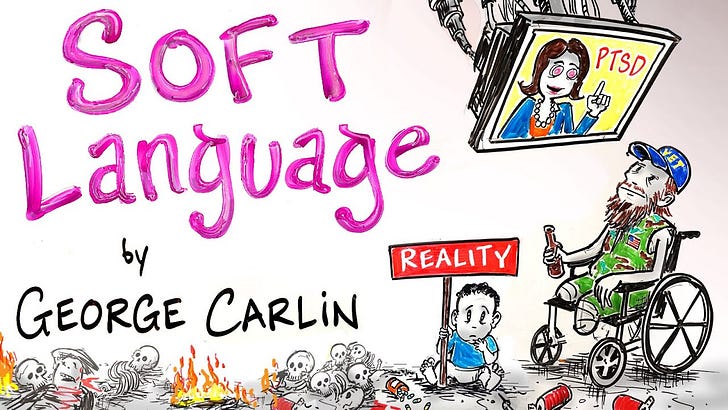Dear Friends —
Years ago, the brilliant founder of the Global Press, Cristi Hegranes, opened my eyes to the ways in which shortcuts we take in language are a source of othering, misrepresentation, and disrespect. Global South. Arab world. Modern. Diabetic. Bureaucrat. Marginalized.
Mostly, this is unintentional. In our tl;dr world we collapse complexity into single words or phrases, without meaning to take away humanity or specificity. Sometimes it is purposeful, like applying the word “alien” to someone living in a country in which they were not born, in the hopes that the word itself will connote fear of imaginary differences.
Whether intended or not, when we use overbroad language a lot of meaning gets lost and the space for miscommunication grows. What Christi taught me, in part through the Global Press Style Guide she and colleagues created, is the value of specificity, with the specifics linked to the point you’re trying to make.
Here are a few of the Global Press examples:
developing nation, developing world, economically developing, emerging economy, Global South, Third World
Rule: Do not use the terms developing nation, developing world, economically developing, emerging economy, Global South or Third World to describe any country or region. Instead, include economic data relevant to a story’s news value.
Rationale: The terms are geographically imprecise, do not have widely accepted definitions and are generally used as sanitized synonyms for poverty. Using generalized terms to imply poverty across large land areas and countries that have little else in common reflects bias and defines complex communities by foreign standards of wealth.
people of color
Rule: Do not use this term to describe or categorize nonwhite people. Use precise terms to describe people according to a story’s news value. Allow sources to self-identify. The term is acceptable in quotes.
Rationale: Precise terms promote reader clarity and source dignity.
disabilities
Rule: Do not describe a source as the subject of a disease or disorder, but rather as a person with a disease or disorder. Do not use imprecise terms, including disabled person or the disabled, unless part of a formal name or preferred by a source. Do not use differently abled or handi-capable, and do not refer to people without a disability as normal or able-bodied. In countries where medical experts are scarce, physical or cognitive disability might be assumed by local people to be connected to religion or the spiritual realm. Do not repeat unproven beliefs in a way that misleads readers.
Rationale: Precise medical diagnoses and descriptions are always required to ensure dignity and accuracy.
Being specific turns out to be both hard and useful. You have to think to yourself: what is it about this person, this community, this culture, this place that is actually relevant to the subject matter I’m engaging with — with what I’m really trying to say. Am I talking about “Soccer moms” (remember them?) to refer to a specific and known group of women who watch their kids play soccer and have some shared set of values and beliefs that shapes their political behavior — or because it’s easier to invoke these imaginary people than to meet and describe real ones? Am I saying “Black and brown communities” because skin color per se is actually a relevant factor in the storyline or because that saves us the trouble of thinking more deeply about what racism is, and how it affects people from different background and origins in different ways?
On all sides of every issue, all along the political spectrum, we get into pretty deep trouble by relying on imprecise or coded language. It takes considerable effort not to do just that, but if the payoff is that we know what we’re talking about — and others do, too — it’s worth it.
Leaving the last word today to the incomparable George Carlin.
Have a good weekend,
-Ruth



